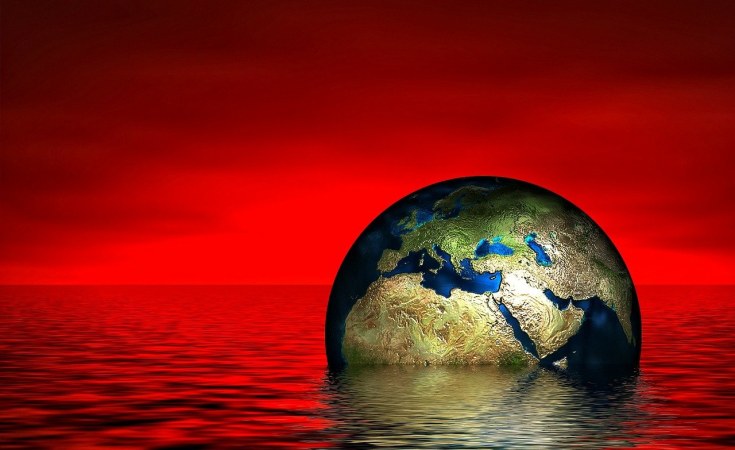AfDB said the continent only received $18.3 billion, leaving it with an annual financing deficit of $108 billion
Experts from the African Development Bank and International Monetary Fund (IMF) have said that African countries need to mobilise $1.6 trillion within seven years to meet their Nationally Determined Contributions (NDC) pledges to resist climate change effects.
The experts disclosed this during a panel discussion at the African Development Bank's 2022 African Economic Outlook programme organised by the IMF in Washington on Monday.
"African countries need to mobilise $1.6 trillion between 2022 and 2030 to meet their Nationally Determined Contributions to fight climate change," a statement by the AfDB on Wednesday quoted participants at the meeting to have said.
It noted that, so far, the continent only received $18.3 billion annually, leaving a financing gap of $108 billion.
"With current trends, Africa's NDCs will not be achieved," AfDB said.
The NDC is a document embodying ambitious pledges and actions set by countries that have endorsed the Paris Agreement in order to effectively and efficiently reduce carbon emissions, thus mitigating the devastating impacts of climate change in their respective countries.
It also contains actions countries intend to take in order to build resilience to adapt to the impacts of the rising temperatures.
Experts submission
During his presentation, AfDB's Acting Chief Economist and Vice President, Kevin Urama, noted that Africa has huge comparative advantages to lead the world in new green transition, but the continent lacks the finances to do so.
He said the findings of the 2022 African Economic Outlook show that the structure of climate finance is very complicated and creates a misallocation of resources.
As a result, Mr Urama said the main objective of climate finance to support climate-vulnerable countries is not being achieved.
"One fundamental, existential issue for Africa is climate change. The countries that are receiving climate financing are the less vulnerable ones," Mr Urama noted.
In his remarks, Director of the African Department at IMF, Abebe Selassie, noted that African policymakers face the unenviable task of needing to invest trillions of dollars in an important energy transition that the region needs to advance its development.
He said, "At the same time, they are being asked to think about the adverse effect that this may have on climate change, but advanced countries who benefited from climate unfriendly policies are unwilling to support development in the region."
Mr Selassie said "this is one issue that policymakers raise with us when we engage with them on the financing challenges they face".
He described the findings of the 2022 African Economic Outlook as "sobering", and that "it raised some profound issues."
Similarly, IMF's Assistant Director in the Fiscal Affairs Department and Climate Change Policy Coordinator, James Roaf, identified adaptation as the biggest issue for Africa.
He said, "The African Economic Outlook rightly stresses the need to integrate climate objectives in overall sustainable development pathways. We need to focus on making the most of the opportunities that the clean energy transition offers so that climate mitigation and adaptation policies come hand in hand with rising prosperity."
"Mobilising the private sector is critical, with policies such as carbon pricing to encourage investment in renewables, or improving adaptation incentives by reinforcing property rights or strengthening regional trade," Mr Roaf said.


